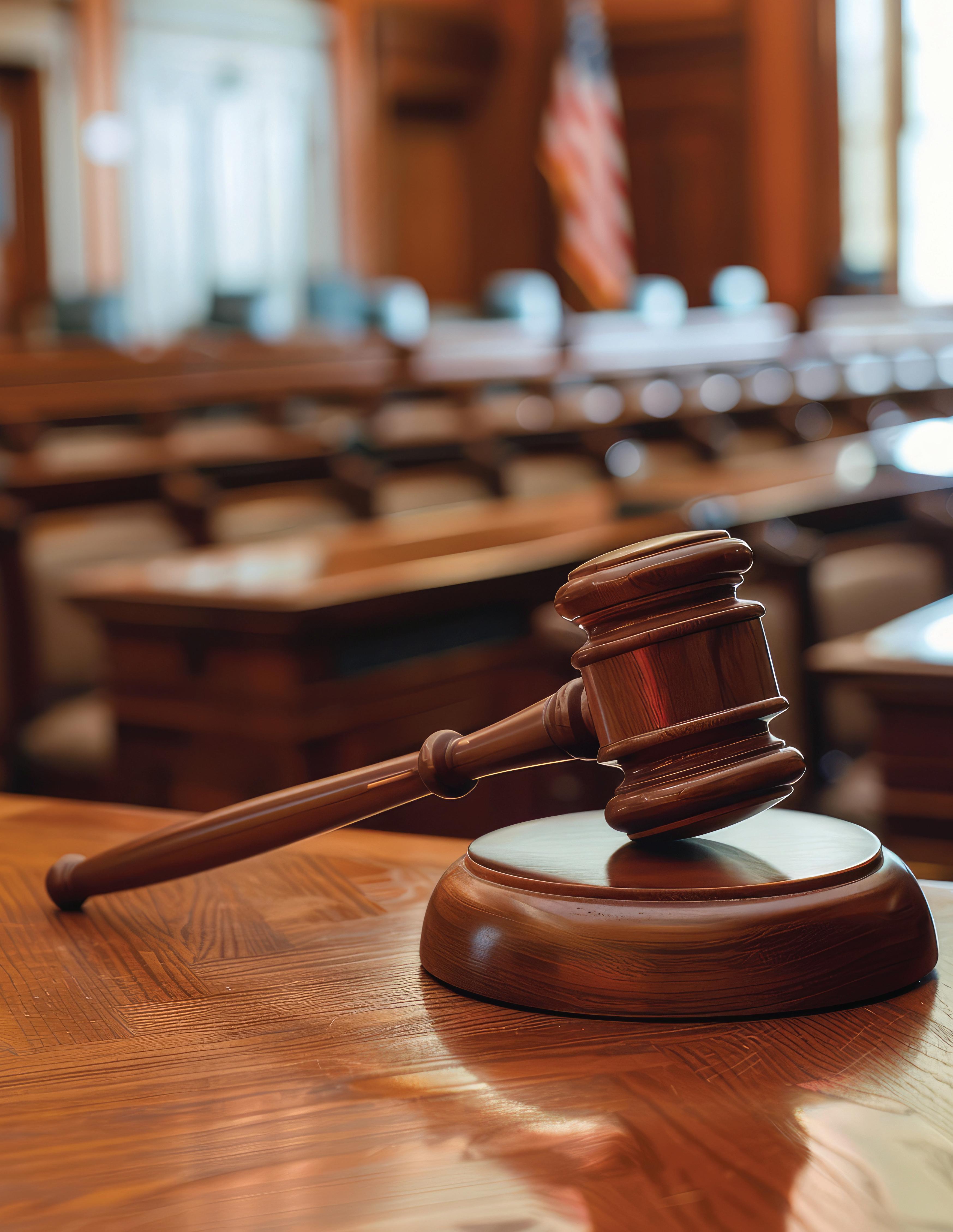

EDITOR’S LETTER
WELCOME
Dear Valued Clients and Partners,
I’m excited to present the latest edition of “In the Know: General Liability Edition” at a moment when our division’s growth has reached new heights. Our geographic footprint now spans ten states – Florida, Illinois, Louisiana, Massachusetts, Michigan, New Jersey, New York, Pennsylvania, Texas, and Wisconsin – enabling us to serve you wherever your cases take us.
This expansion isn’t just about geography. It’s about building specialized teams with the depth and experience to tackle your most complex challenges. Our Products Liability practice has become a powerhouse, driven by deeply experienced attorneys including Kelly Lynn Ferron, Scott Kagan, and our newest addition, David Gonzalez. This team doesn’t just handle cases in the states where we’re barred – they’ve been admitted Pro Hac Vice to represent clients across the country. Over the past year, we’ve strategically grown this practice with attorneys who bring vast experience defending clients in the elevator, motor vehicle, motorcycle, and propane products industries.
Our Short Hills, New Jersey office represents an exciting new chapter for the firm. While this marks a fresh focus area for us, it builds naturally on our already thriving New York State presence, with established offices in Manhattan and Albany. This strategic positioning allows us to better serve the broader tri-state region while deepening our commitment to clients throughout the Northeast. Meanwhile, we continue to strengthen our teams in Illinois, Wisconsin, and Texas, where fresh talent joins seasoned practitioners to create formidable benches.
The momentum in our New York Labor Law practice deserves special recognition. This group continues its exponential growth, and our current team has already represented clients in an impressive 51 out of 62 New York counties – from Rochester to Long Island and everywhere in between. In the coming months, we’ll welcome an additional team of experienced attorneys who will push our reach even further across the state.
What ties all this growth together is something unchanging: our commitment to you. Every new attorney, every new office, every expansion of our capabilities exists to serve one purpose – delivering the results you need when you need them. Whether you’re facing a products liability claim in Pennsylvania, a labor law matter in upstate New York, or a complex general liability case anywhere in our growing footprint, you have a team ready to respond.
Thank you for your continued partnership and trust. As we grow, your confidence in Kelley Kronenberg remains the foundation of everything we build.
Warm regards,


David Henry Chair, General Liability and Transportation Division

Facts Over Feelings: A Strategic Guide to Meritless Claims
By: Connor C. Milo, Esq.
When a lawsuit lands on your desk that appears meritless, exaggerated, or even dishonest, the natural human reaction might be to dismiss it outright or attack the claimant’s credibility in harsh terms. You find yourself thinking, or even saying, “This case is bull,” or “They’re lying.” This may be true, but we cannot — and must not — rely on frothy emotional appeals.
Even if we privately believe a case is fraudulent or absurd, our role is not to express our frustration or insult the other side. Our role is to defend — to build a factual and legal counter-narrative based on evidence, credibility, and sound argument.
Cases are decided based on facts—it’s not what we suspect; it’s what we can prove.
So, how do we prove it?
It starts with discovery. Discovery is the foundation for building a successful defense. Use your intuition as a starting point but let methodical investigation guide your strategy. Working with defense counsel, subpoena all relevant documents early and cast a
wide net. Medical records, employment files, social media posts, financial documents, and communication records often reveal inconsistencies that undermine exaggerated claims.
When reviewing records, create detailed chronologies that compare the plaintiff’s stated version of events with documented evidence. Look for gaps in treatment, inconsistent symptom reporting, or activities that contradict claimed limitations. For example, a plaintiff claiming total disability who posts photos of recreational activities or returns to work in any capacity provides powerful impeachment material.
Utilize expert testimony strategically. Retain qualified experts early in the process to review medical records, employment histories, or technical aspects of the claim. Independent medical examinations can reveal objective findings that contradict subjective complaints. Vocational experts can demonstrate earning capacity despite claimed disabilities. Accident reconstruction specialists can challenge causation theories. Expert opinions carry significant weight with plaintiffs, opposing counsel, and ultimately, juries.
Master the art of depositions. During depositions, defense counsel should control the pace and scope of questioning through strategic objections and careful witness monitoring. When witnesses provide favorable testimony, they ensure
complete development of those points through targeted follow-up questions. For problematic testimony, they employ damage control techniques while preserving all appellate rights through appropriate objections.
Our defense attorneys conduct exhaustive preparation through comprehensive document review, witness background investigations, and strategic planning to anticipate testimony patterns and potential vulnerabilities. They research opposing counsel’s deposition style to better anticipate objectionable questions and prepare strategic interventions.
What happens when all this preparation leads to trial?
Maintain professional composure, a jury’s perception will significantly impact verdicts. Defense counsel should present evidence through calm, confident methodology that allows facts to speak for themselves without appearing adversarial toward plaintiffs. This measured approach enhances credibility and demonstrates thoroughness.
Our attorneys expose weaknesses in plaintiff testimony while maintaining respectful courtroom decorum. Rather than direct character attacks, we frame inconsistencies as factual disputes. Our goal is to guide juries toward logical conclusions by stating, “The documented evidence presents a different timeline” rather than making accusatory statements. This strategic approach appears more credible to juries and allows them to independently assess truthfulness.
Show jurors — with calm, strategic presentation — where the truth lies.
Why does all of this matter?
When we attack plaintiffs with inflammatory language or dismissive attitudes, we’re not just risking ethical violations — we’re actively harming our clients’ cases. Jurors respond negatively to lawyers who appear mean-spirited or arrogant. They begin to sympathize with the plaintiff simply because defense counsel seems unlikable. This emotional shift can cost your insureds thousands or even millions in verdict amounts.
You may be looking at a case right now that has you screaming, “This plaintiff’s totally lying.” That may, in fact, be true. In fact, an adjuster’s suspicions are almost always correct. The attorneys at Kelley Kronenberg are experienced in developing cases in ways that support your suspicions. Together, we can devise an air-tight discovery plan that will arm us with the facts and evidence necessary to establish the lie and get the win.

Artificial Intelligence — Liability or Asset?
By: Benjamin Lazarus, Esq.
Time is money for busy claims professionals. As markets fluctuate, clients and insurance carriers expect more efficiency and costeffectiveness. In today’s environment, time for thoughtful analysis and strategic planning is the ultimate currency.
Successful claim outcomes generally require reviewing voluminous documents, analyzing detailed data sets, managing negotiations, and meeting tight deadlines. Yet, critical strategic planning time is often spent on routine tasks. Artificial intelligence (AI)
promises to streamline these challenges and support strategic decision-making by outsourcing administrative tasks, accelerating document review, and performing complex data analysis.
However, AI is not without its risks. While AI can significantly enhance existing processes as a key asset, its implementation must be strategic and responsible. Potential overreliance and misuse can result when it is employed without sufficient oversight. Like any technology, the inherent risks must be effectively managed for AI to be leveraged as a competitive advantage.
The advancement of AI will dramatically influence industries, organizational structures, and workflows. As capabilities and accuracy improve, reliance on AI’s integration will rapidly increase towards widespread adoption. Here are three major ways that AI may be used by claims professionals and
insurance companies to enhance operational efficiencies:
• Data Analysis and Pattern Recognition
With AI, extensive claims datasets can be processed swiftly to identify trends such as frequent accident locations or patterns indicating fraud. In transportation claims, AI-driven telematics tools can be used to reconstruct accident scenarios with remarkable precision. For instance, AI can be used to analyze black-box data early and reveal crucial details, such as steering and braking maneuvers.
• Predictive Analytics and Reserves
Predictive analytics provide confidence in forecasting with improved financial planning and accuracy. AI can learn from historical claims outcomes to prevent costly reserve overruns. In general liability claims, AI can be used to rapidly analyze extensive historical data like settlement patterns and potential costs. These strategic insights can enable improved accuracy in claim values and cost planning, to allocate appropriate reserves early in the process.
• Document Review and Summarization
Advanced AI tools can summarize lengthy documents like medical records, police reports, and contracts, quickly distilling essential details. For instance, AI can rapidly highlight pre-existing conditions in medical records. Professional liability claims, often involving complex and voluminous documentation, are uniquely suited to AI support. AI tools can swiftly
process and analyze extensive medical malpractice or errors-and-omissions (E&O) claim files, rapidly highlighting inconsistencies or relevant diagnoses, resulting in a notably improved claim posture.
It is important for claims professionals to understand the complexities and potential pitfalls of AI clearly. A strategic approach to AI reinforces a commitment to using it responsibly for the significant opportunities it presents.
Ultimately, whether AI becomes a liability or an asset depends entirely upon its responsible, strategic integration. Due diligence and a clear sense of responsibility are the core first principles of strategic AI utilization. Whether handling straightforward or complex claims, a proactive approach to responsibly embracing these current trends can properly leverage this powerful technology.
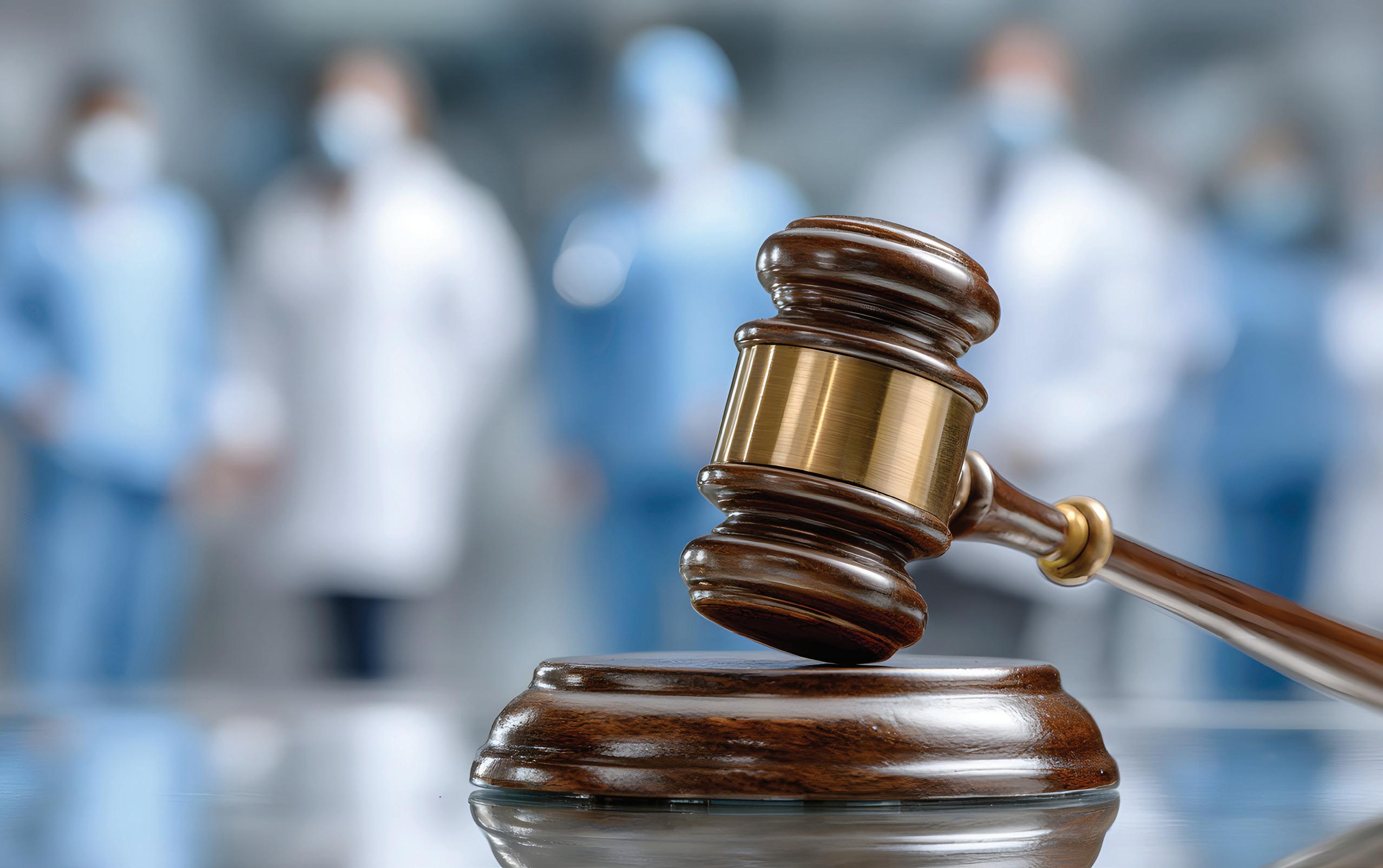
How Recent New York Cases Reinforce ExpertDriven Defense Wins
By: Dawn M. Miller, Esq.
When a plaintiff files a motion for summary judgment on liability, many defense attorneys assume the battle is nearly lost. But seasoned litigators know better—they recognize this moment as an opportunity
to deploy a strategic weapon that’s often underutilized: the right expert at the right time. While most claims professionals and attorneys reflexively think “independent medical examination” when they hear the word “expert,” the most successful defense strategies go far beyond damage mitigation. By strategically retaining biomechanical engineers, accident reconstructionists, and specialized physicians early in litigation, defense teams can do more than just reduce exposure—they can defeat plaintiff’s summary judgment motions entirely by challenging the very foundation of how the accident occurred. Recent decisions from New York’s Appellate Division have underscored just how powerful this approach can be.
Challenging the Plaintiff’s Narrative: Recent Case Law
The key to defeating summary judgment on liability often lies in raising triable issues of fact about how the accident actually occurred. When defense experts can demonstrate that the plaintiff’s injuries are inconsistent with their claimed version of events, courts have consistently found this sufficient to deny summary judgment—even when the plaintiff has made out a prima facie case.
Broughton: A 2025 Blueprint for Success
In Broughton v. 553 Marcy Avenue Owners LLC et al., 2025 NY Slip Op 02992 (1st Dept. 2025), the plaintiff, a laborer, alleged he fell approximately 20 feet through an unprotected hole in a roof during a building demolition project. Plaintiff moved for summary judgment on his Labor Law §240(1) claim and made out a prima facie case.
However, the defendants defeated the motion by strategically deploying two experts: a mechanical engineer and a neurosurgeon. The mechanical engineer concluded that based on scientific principles of biomechanics and available medical research, a 20-foot fall would have produced significant objective findings of traumatic injury—which the plaintiff’s medical records did not reflect. He opined that the accident did not occur as plaintiff claimed.
The neurosurgeon conducted an independent medical examination and
found that plaintiff’s examination was “remarkable for nonphysiological findings, inconsistencies, symptom magnification, and embellishment.” He concluded that the injuries the plaintiff sustained were inconsistent with both a 20-foot fall and plaintiff’s testimony that he landed face first, struck his head, and lost consciousness.
The Court held that the experts’ shared conclusion—that plaintiff did not experience injuries consistent with his claimed fall— was not mere speculation but sufficient to create a triable issue of fact based on their review of medical records and independent examination.
Aspromonte: Reinforcing the Strategy
The use of experts to defeat a summary judgment motion was also outlined in Aspromonte v. 118 E. 17 Realty LLC, 162 A.D.3d 484 (1st Dept. 2018). There, the plaintiff testified that he fell a significant distance down a shaft when a rail defectively wedged against a wall broke or gave way when he leaned on it. In opposition, the defendants submitted expert affidavits from a neuroradiologist and a biomechanical engineer, who both opined that plaintiff’s injuries were inconsistent with the alleged fall. The First Department unanimously affirmed denial of plaintiff’s partial summary judgment motion on the issue of liability on his Labor Law §240(1) claim.
Types of Experts and Their Strategic Value
While independent medical examinations to mitigate damages are critical, practitioners should not overlook the benefits of experts
for challenging liability. The following expert types have proven particularly effective:
Accident Reconstructionists – These experts can be used to call into question a plaintiff’s testimony as to how the accident occurred. If done timely, the expert’s opinion can be used to defeat plaintiff’s motion for summary judgment on liability.
Biomechanical Engineers – These experts use scientific principles of biomechanics and available medical research to produce significant objective findings of traumatic injury, ultimately concluding the accident did not occur the way the plaintiff claimed it did. Their testimony is particularly powerful because it is rooted in physics and engineering principles rather than subjective observations.
Neurosurgeons/Orthopedists – These experts can be used to conduct independent medical examinations of the plaintiff to challenge the plaintiff’s account of the accident through findings of inconsistencies in the plaintiff’s verbal reports of the injuries, symptom magnification, and embellishment, calling the plaintiff’s credibility into question.
Neuroradiologists – These experts can review imaging studies and medical records to determine whether the objective findings support or contradict the plaintiff’s claimed mechanism of injury and any pre-existing conditions.
Strategic Recommendations for Claims Professionals
When building the defense of a case, practitioners should not just “check the boxes” and retain the run of the mill experts which typically consist of experts used to simply mitigate the plaintiff’s damages. If a review of the plaintiff’s injuries and account of the accident do not seem to align, the practitioner should consider having the pertinent records reviewed by an expert engineer.
Furthermore, the portions of the inconsistent records, whether it be in the medical records, an accident report, a deposition transcript or a contractor’s daily report, should be specifically pointed out to all examining independent medical physicians so that they can incorporate all evidence in their findings. These specific references will need to be included in any affidavit needed from the physician to oppose the plaintiff’s summary judgment motion.
If the use of the above type of experts is anticipated prior to the plaintiff’s deposition, the defense attorney should speak with the expert prior to the deposition. All facts of the accident known to date should be relayed to the expert. The expert can then make sure the attorney asks all of the necessary questions during the plaintiff’s deposition to obtain all the information that the expert needs to make the most substantiated opinion possible. This could include the position of a plaintiff in a vehicle and the speed of a vehicle at the time of the accident if one is dealing with a motor
vehicle accident; or the distance of a fall if dealing with a labor law case.
The Benefit of Experienced Counsel
The strategic use of experts is vital to the success of the defense of a case. You must think strategically when determining what experts are needed to defend both liability and damages. Whether at the summary judgment phase or later in the scope of defense, the outcome of your case depends on it.
Kelley Kronenberg’s New York General Liability team has extensive experience strategically deploying experts to challenge plaintiff narratives and defeat summary judgment motions. Our attorneys work with claims professionals to identify the right experts early, coordinate pre-deposition consultations, and develop affidavits that create triable issues of fact on liability. For guidance on expert retention strategies in your New York cases, contact our team.

BEHIND THE
Policy Limits or Limitless Liability? Mastering the Stowers Demand in Texas
By: Michael Q. Roos, Esq.
A savvy Texas plaintiff’s attorney knows how to strategically utilize a Stowers Demand, and an unknowing claims handler could unwittingly expose both the insured and the carrier to significant liability. Whether issued pre-litigation or during trial, these demands can dramatically impact case strategy and outcomes—either forcing a substantial settlement or opening the door to an excess judgment that exceeds policy limits. Understanding the Stowers Doctrine and how to properly evaluate and respond to these demands is critical to protecting both the insurer and insured. This article provides an overview of the Doctrine, best practices for handling Stowers Demands, and their impact on discovery and trial strategy.
How does the Stowers Demand work?
When settling a liability claim, an insurance company has a duty to act in good faith when a third-party’s claim is within the scope of coverage. This duty applies when:
• The demand is within policy limits
• The terms of the demand are such that an ordinarily prudent insurer would accept it, considering the likelihood and degree of the insured’s potential exposure to an excess judgment. 1
• When a valid demand has been made and the insurer’s negligence in failing to settle results in an excess judgment against their insured, the insurer is liable for the entirety of the judgment. 2
An insurer can protect both its own interests and those of the insured by conducting a thorough evaluation of the demand and delivering a well-crafted response.
Upon receiving a Stowers Demand, the insurer must promptly notify the insured and prepare a response that can be delivered within the required deadline. A carefully crafted response is critical—it can serve as the insurer’s primary defense against liability for any excess judgment. If the insurer chooses to reject the demand, the rejection must be:
• Well-documented – All analysis, communications, and decision-making processes should be thoroughly recorded
• Made in good faith – The decision must reflect reasonable judgment based on the facts and circumstances
• Clearly explained – The reasons for rejection must be articulated in detail, demonstrating that the insurer acted as an ordinarily prudent insurer would under similar circumstances
Failure to meet these standards can expose the insurer to liability for the full amount of
any excess judgment, regardless of policy limits.
Evaluating and Responding to Stowers Demands
A Stowers Demand forces the insurer to either protect the insured by tendering policy limits or take the case to trial and obtain a verdict for less. However, proceeding to trial opens the insurer to potential negligence liability. Consequently, both the evaluation of the demand and the insurer’s response are critically important.
When evaluating a demand, multiple factors must be considered:
• Validity – Does the demand actually meet the requirements to be a valid Stowers Demand?
• Timing – Does the response deadline provide reasonable time for thorough evaluation?
• Information Sufficiency – What documents and information have been provided through the demand, informally, or through discovery? Is additional information needed for a complete evaluation?
• Injuries and Damages – What is the nature and extent of the claimant’s injuries? Is future medical treatment, including surgery, anticipated?
• Medical Costs – What is the total cost of treatment? Has health insurance covered any expenses? Are the charges reasonable compared to other area providers?
• Litigation Risks – What risks are associated with trial? How favorable is the venue? How experienced is opposing counsel and the presiding judge? Have they been involved in large or nuclear verdicts? What is the likelihood of an excess judgment?
How Stowers Demands Impact Discovery and Trial
If a demand is rejected and the case proceeds to litigation, the insurer must consider how that rejection affects both discovery strategy and trial exposure.
Discovery Phase
During discovery, the insurer should obtain and thoroughly analyze all information regarding the claimant’s injuries, treatment, and medical history through document requests and testimony. This analysis provides another critical opportunity to reassess settlement authority—either to pursue early resolution or confirm the decision to proceed to trial.
Post-Trial Exposure
If the jury awards damages exceeding policy limits, the insured may claim the insurer acted negligently in rejecting the demand. At this point, several scenarios can unfold:
If the insurer pays the full judgment, the case is resolved.
If the insurer refuses to pay the excess, the insured can sue for negligent claims handling or assign their rights to the plaintiff, allowing the plaintiff to sue the insurer directly.
BEHIND THE
Alternatively, the plaintiff can seek a turnover order to obtain the insured’s rights or pursue direct collection against the insured
Understanding the Stowers Doctrine— including how demands impact discovery and trial strategy—enables insurers to respond appropriately and protect both their own interests and those of the insured.
How Kelley Kronenberg Can Help
Kelley Kronenberg’s Texas litigation team has extensive experience guiding insurers through complex Stowers scenarios. There is tremendous value to involving defense counsel in the early stages of investigation or upon receipt of a demand. With experienced counsel at your side, you can avoid costly missteps and pave the way for an expedient and favorable outcome.
Our attorneys work alongside claims handlers to:
• Evaluate demands strategically – We analyze validity, timing, and exposure to provide clear recommendations on whether to accept, reject, or negotiate.
• Craft defensible responses – Our welldocumented, good-faith responses are designed to withstand scrutiny in potential bad faith litigation.
• Manage litigation risk – From discovery through trial, we develop strategies that minimize excess judgment exposure while aggressively defending your insured.
• Defend bad faith claims – If an excess judgment occurs, we have proven experience defending insurers against negligent claims handling allegations.
For more information about how our team approaches Stowers Demands, contact me or any member the General Liability Team in Kelley Kronenberg’s Texas office.
1 See In re Farmers Tex. Cnty. Mut. Ins. Co. , 621 S.W.3d 261, 267 (Tex. 2021).
2 See Phillips v. Bramlett, 288 S.W.3d 876, 879 (Tex. 2009).

Safe Harbor or Legal Minefield? Understanding Wisconsin’s Safe Place Statute
By: Kelly Lynn Ferron, Esq.
When we think about a “safe space” or a “safe place,” most of us envision somewhere peaceful and non-judgmental— an environment where we can exhale because there are little to no risks of harm. Wisconsin has codified this concept through
its “Safe Place Statute,” 1 though the reality for property owners and insurers is far less comforting.
The Safe Place Statute was enacted 115 years ago and is awkwardly and oddly worded, making it difficult to understand how the law actually applies. For claims professionals handling Wisconsin commercial premises liability cases, understanding this statute is critical—it serves as a basis for nearly every such claim in the state.
Wisconsin’s Safe Place Statute: Broad Protections, Broad Liability
Wisconsin’s Safe Place Statute protects individuals from unsafe structural defects and hazardous conditions associated with
BEHIND THE
the structure of a building used as a place of employment. The statute’s scope is notably expansive:
Who Can Sue – The statute provides a cause of action to anyone injured on the premises— not just employees—as long as the location serves as someone’s place of employment
Who Can Be Liable – Liability extends to any “owner,” including:
• Privately-held corporations
• Governmental entities
• Individual property owners
• Anyone who maintains the premises, even if they don’t own it
What’s Protected Against – The statute covers unsafe structural defects and dangerous conditions directly associated with the building’s structure
For the full text of the statute, click here
This means that property owners and maintainers face potential liability from visitors, customers, vendors, and other third parties—not just their own employees— whenever the premises functions as anyone’s place of employment.
Understanding the Two Types of Actionable Conditions
(1) structural defects—problems with the physical construction or integrity of the building itself; and
(2) unsafe conditions associated with the structure of the building—hazards that, while not purely structural, are connected to or arise from the building’s structure.
The distinction matters because it defines the scope of liability and helps determine whether the statute applies at all versus an “act of operation” defense.
So, what are some examples of places/ premises in which a plaintiff may bring a cause of action under the Wisconsin Safe Place Statute? The following diverse locations all qualify because they each serve as someone’s place of employment:
1. A parking lot of a residential townhome complex. 2
2. A golf course. 3
3. A hospital.4
4. A hotel. 5
5. A gas station.6
A Higher Standard of Care with NonDelegable Duties
Under the Statute, a property owner can generally be liable for two types of conditions that cause injury:
The Wisconsin Safe Place Statute imposes a higher standard of care than in regular negligence cases and makes duties owed non-delegable.
The safe place statute “establishes a standard of care: to make the place as safe as the nature of the premises reasonably permits . . . The standard of care that the safe place statute establishes is a higher standard of care than that which the law imposes through common law negligence.” 7 This heightened standard significantly increases exposure for property owners and their insurers.
Further, the duties imposed on employers and property owners under the safe place statute are non-delegable. 8 This means owners cannot escape liability by delegating maintenance or safety responsibilities to third parties. However, “[i]n order to be subject to the higher standard of care under the safe-place statute, a defendant must have actual or constructive notice that an unsafe condition or defect exists.” 9 This notice requirement provides a critical avenue for defense.
Elements and Defenses Under the Safe Place Statute
To succeed on a negligence claim under Wisconsin’s Safe Place Statute, a plaintiff must establish three elements:
• Unsafe Condition – There was an unsafe condition associated with the place of employment
• Causation – The unsafe condition caused the plaintiff’s injury
• Notice – The defendant(s) had either actual or constructive notice of the unsafe condition before the injury occurred
Defensive
When a Safe Place Statute claim arises, early case assessment and strategic discovery can significantly reduce exposure:
• Challenge Notice Immediately – Work with your insured to gather inspection schedules, maintenance logs, and timeline evidence demonstrating lack of actual or constructive notice10 Early documentation requests are critical.
• Distinguish Structure from Operations – Pursue early dismissal by establishing that the incident involved an operational act (e.g., dropped objects, employee negligence) rather than a structural defect. 11 This defense can eliminate liability entirely.
• Question “Place of Employment” Status – If the injury occurred in a public area like a parking lot, challenge whether the location qualifies as a place of employment under the statute. 12
• Develop the Open and Obvious Defense – Immediate site documentation, photographs, and witness statements showing the condition was plainly visible can support this defense.
• Attack Causation with Experts – Retain experts early to establish alternative causes or break the causal chain between the alleged condition and the plaintiff’s injuries. 13
• Preserve Evidence Immediately – Since plaintiffs often pursue claims under both common law negligence and the Safe Place Statute simultaneously, prompt site inspection and evidence preservation protect against spoliation claims and strengthen your defense.
BEHIND THE
So, what does this all mean? Essentially, the Wisconsin Safe Place Statute provides just another cause of action for many premises liability cases in addition to a run-of-themill negligence claim. It attaches additional caveats, and it puts a more stringent burden on defendant owner(s)/operator(s)/ maintainer(s) of premises. However, it is seen very commonly though not necessarily well known to anyone who does not practice or handle claims in Wisconsin regularly. Kelley Kronenberg’s Wisconsin team has extensive experience navigating these unique statutory requirements and developing defenses that protect insurers from expanded exposure under the Safe Place Statute.
Our team has had many successful outcomes in cases involving claims brought under the Wisconsin Safe Place Statute, including the following small sample:
• Successful defense of a natural gas explosion wrongful death case involving a claim made under the Wisconsin Safe Place Statute that occurred at a gas station, effectively and systematically garnering evidence to strongly point to a good deal of negligence on the part of the Decedents.
• Persuading plaintiff’s counsel to agree to a voluntary dismissal of a top retailer in a commercial premises liability case involving a Safe Place Statute claim, without paying any settlement monies.
• Successfully arguing statute of limitations and failure to effectuate service defenses, leading to a dismissal, with prejudice, in a commercial premises case involving a Wisconsin Safe Place statute claim, with our client paying $0.
We are ready and eager to assist with any Wisconsin-related matters and to help navigate the ins and outs of not only claims involving the Wisconsin Safe Place but also any other Wisconsin needs you might have.
1 See Wis. Stat. 101.11
2 See Wittka v. Hartnell, 46 Wis.2d 374 (Wis. 1970).
3 See Gennrich v. Zurich Am. Ins. Co. , 2010 WI App 117 (Wis. Ct. App. 2010).
4 See Hofflander v. St. Catherine’s Hosp., Inc. , 262 Wis.2d 539 (2003).
5 See Schwenn v. Loraine Hotel Co. , 14 Wis.2d 601 (1961).
6 See Kochanski v. Speedway SuperAmerica, LLC, 2014 Wis. 72 (Wis. 2014).
7 See Megal v. Green Bay Area Visitor & Convention Bureau, Inc. , 274 Wis.2d 162 (Wis. 2004)
8 See Barry v. Employers Mut. Cas. Co. , 2001 WI 101, ¶ 42, 245 Wis. 2d 560, 579, 630 N.W.2d 517, 526.
9 See Kochanski v. Speedway SuperAmerica, LLC, 2014 Wis. 72 (Wis. 2014).
10 See Kaufman v. State St. Ltd. Pshp, 187 Wis.2d 54 (Wis. Ct. App. 1994).
11 See Kowalske v. Armour & Co. , 267 Wis. 521, 525-26 (1954).
12 See Gordon v. Schultz Savo Stores, Inc. , 54 Wis.2d 692 (Wis. 1972).
13 See Mair v. Trollhaugen Ski Resort, 291 Wis.2d 132; Rosario v. Acuity, 304 Wis.2d 713










Benjamin Lazarus Attorney
Paul A. Milberg Partner/Business Unit Leader
Aaron D. Neifeld Partner/Business Unit Leader
Ryleigh Walaconis Attorney
Aaron D. Neifeld Partner/Business Unit Leader
Claudia Acosta Of Counsel


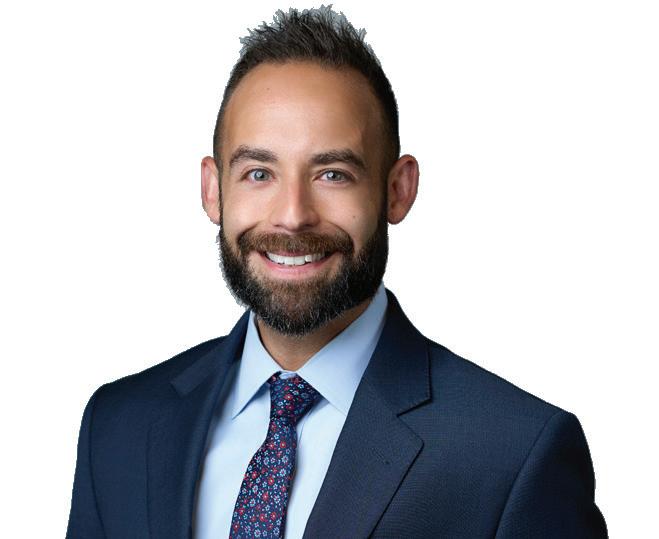


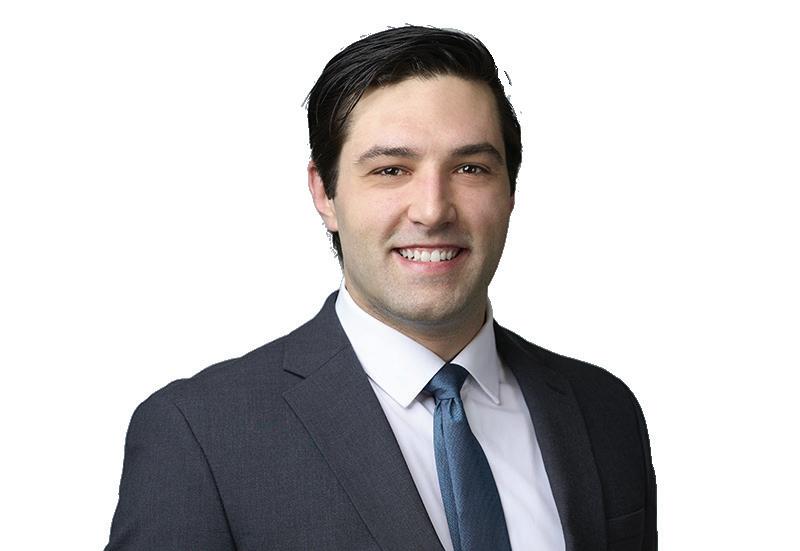
Douglas J. Pegan Attorney
Scott D. Kagan Partner/Business Unit Leader
Kaitlin A, Coyle Practice Partner
MEET THE
CONTRIBUTORS
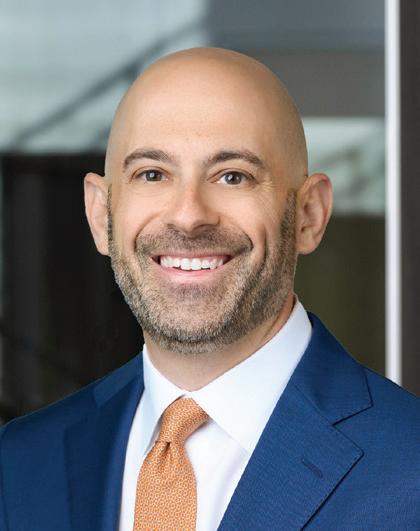
David S . Henry Chair, General Liability and Transportation Division
Fort Lauderdale, FL | New York, NY
Email David S. Henry

David Henry serves as the Chair of our firm’s General Liability and Transportation Division, which includes our New York Labor Law and Gig Economy Practices. He focuses his practice on high exposure and complex litigation, dividing his time between our Florida and New York offices to assist clients in both states.
David specializes in working with national and international insurers, including the Lloyds of London Market, to defend corporations, municipalities, and individuals facing liability arising from various tort and commercial causes of actions. He has a strong track record of success, securing efficient outcomes as soon as possible, but also wins through voluntary dismissal, summary judgment, trial, and appeal. David has also developed a reputation as a skilled and deliberate negotiator, able to leverage nuanced and intricate coverage positions and defenses to benefit his clients through direct negotiation, and especially, at mediation.
David manages a large and experienced team of attorneys across multiple offices nationwide. Under David’s leadership, the team focuses on the needs of our clients’ cases, identifying the specific caseby-case litigation requirements to bring about
an efficient resolution. The Division’s attorneys emphasize effective communication and client service, regularly updating clients and insurers about each case’s developments.
David’s current practice centers on the most intricate and challenging matters, encompassing a range of complex cases involving New York Labor Law Section 240 cases, bad faith litigation, negligent security, dram shop, premises liability, commercial transportation, product liability, and more.
David boasts a wealth of diverse litigation experience, having skillfully handled a broad spectrum of cases, ranging from defamation, Section 1983 claims, construction defect, toxic tort, medical malpractice, directors’ and officers’ liability, professional malpractice, class action lawsuits, coverage, and matters under the Fair Debt Collection Practices Act. David has also engaged in commercial litigation.
David has been involved in cases with prominent media coverage and a strong community impact. He plays a crucial part in the firm’s Rapid Response Team, ensuring his availability for unforeseen situations, regardless of the time of day.

Kelly Lynn Ferron Partner/ Business Unit Leader Chicago,
IL | Miami, FL
Email Kelly Lynn Ferron

Kelly Lynn Ferron is a Partner and Business Unit Leader at Kelley Kronenberg who focuses her practice on all aspects of general liability and civil litigation defense, including products liability, construction accident, fire and explosion, intentional torts, premises liability, trucking and commercial transportation, negligent security, and automobile liability defense. She is also a part of the firm’s Rapid Response Team.
Kelly brings over fifteen years of experience in catastrophic injury and wrongful death cases, handling extremely high exposure cases throughout the United States. She also possesses the unique skill set to effectively spearhead high stakes drop-in “parachute” cases, rapidly preparing complex litigation for trial when cases are generally
received in close proximity to court dates. She has represented numerous Fortune 500 companies, as well as construction, manufacturing, and trucking companies throughout her career.
Prior to joining Kelley Kronenberg, Kelly worked for the Miami-Dade Public Defender’s Office, followed by two boutique civil litigation firms in Miami, Florida. Thereafter, she served as a Partner at two highly regarded Chicago-based civil litigation defense firms.
Kelly earned her Juris Doctor from the University of Miami School of Law and received her Bachelor of Science in Legal Studies and Psychology from the University of Wisconsin-Madison.
THE
CONTRIBUTORS MEET
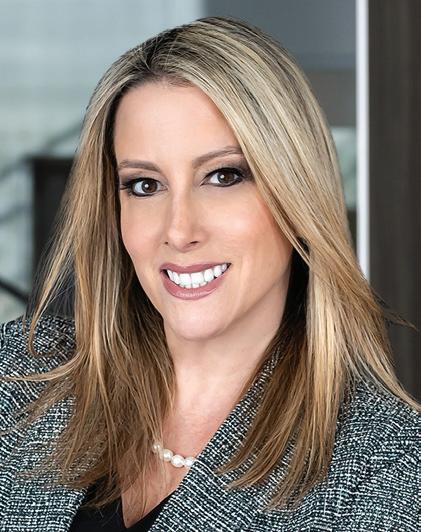
Julie B . Karron Partner/ Business Unit Leader
Fort Lauderdale, FL
Email Julie B. Karron

Julie Karron is a Partner and Business Unit Leader at Kelley Kronenberg. She focuses her practice on professional liability defense and civil litigation. She has nearly two decades of experience in complex insurance defense, commercial litigation, and professional liability defense.
Julie excels in managing a diverse caseload, providing proficient defense in tort and catastrophic loss, construction accidents, premises liability, and professional liability. Her extensive experience includes defending wrongful death and catastrophic loss claims, representing general contractors and subcontractors in construction defects litigation,
and managing high-stakes business disputes.
In her professional liability practice, she regularly handles matters on behalf of associations, businesses, contractors, developers, business owners, and professionals, including lawyers, accountants, physicians, insurance agents, appraisers, and real estate brokers.
Julie graduated from Florida International University with a bachelor’s degree in criminal justice. She obtained her Juris Doctor from Nova Southeastern University Shepard Broad College of Law, where she was a member of the Moot Court Honor Society.
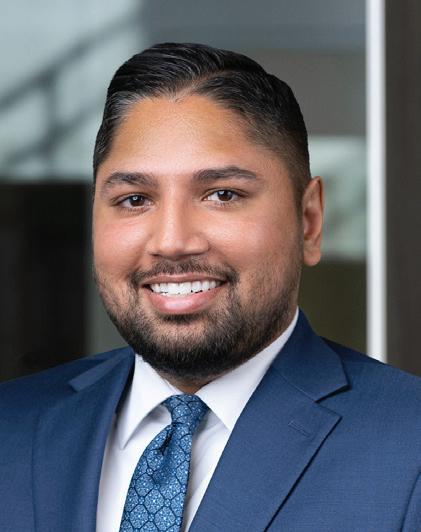
Benjamin Lazarus Attorney Tampa,
FL
Email Benjamin Lazarus

Benjamin Lazarus is an attorney at Kelley Kronenberg, where he assists in handling matters related to all aspects of liability and casualty defense with a focus on third-party insurance defense.
Benjamin earned his Bachelor of Business Administration from Stetson University, where he studied Family Enterprise. Additionally, Benjamin earned his Master of International Business from The University of Adelaide in South Australia and his Certificate of Graduate Study from The Institute of World Politics, in Washington, D.C.
Benjamin went on to earn his Juris Doctor degree from Stetson University College of Law, with a Certificate of Concentration in International Law. While at Stetson Law, Benjamin completed the University’s Honors Program and Leadership Development Program. Benjamin also joined the Dispute Resolution Board as a member of the Vis Moot International Commercial Arbitration Team and National Sports Law Negotiation Competition Team.
THE
CONTRIBUTORS MEET

Dawn M . Miller Partner
New York, NY
Email Dawn M. Miller

Dawn Miller is a Partner at Kelley Kronenberg, focusing her practice on general liability including construction accidents, premises liability, automobile liability, and New York Labor Law.
Before joining Kelley Kronenberg, Dawn served as an Associate Attorney, overseeing comprehensive caseloads that encompassed premises and general liability cases. In this role, she collaborated with experts to deliberate on their opinions and develop strategic plans, assessed injuries and jury verdicts and handled all facets of pretrial discovery, encompassing the preparation of pleadings, requests for discovery, and responses to discovery requests.
Dawn received her Bachelor of Arts in Legal Studies and Psychology and graduated summa cum laude from Quinnipiac University. She was active in the Legal Studies & Psychology Honor Societies and
the Order of Omega Fraternal Honor Society. Her academic achievements include several prestigious awards, including the Phi Sigma Sigma National Scholarship Award, the Legal Studies Book Award, and The Mitchell M. Berkun Prize in Psychology for Outstanding Academic Achievement in Research. Dawn’s dedication to her studies was evident from her consistent appearance on the Dean’s List throughout her four years of undergraduate education, and her hard work and commitment earned her the Outstanding Freshman Award.
Dawn then pursued her Juris Doctor degree from Pace University School of Law, where she graduated cum laude. Throughout her law school years, she remained on the Dean’s List and was involved in the Public Interest Law Scholarship Organization and the Phi Alpha Delta Law Fraternity.
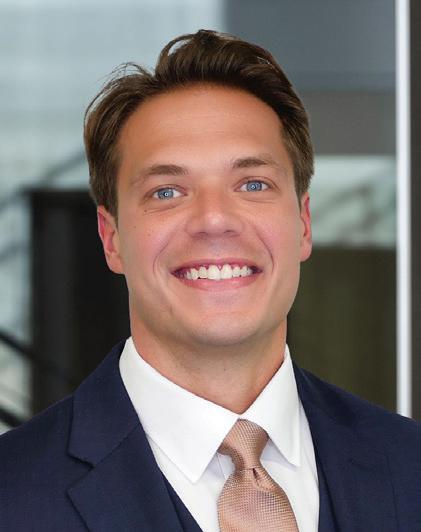
Connor C . Milo Partner Jacksonville, FL
Email Connor C. Milo

Connor Milo is a Partner at Kelley Kronenberg, where he assists in handling matters related to general liability & third-party insurance defense.
Prior to joining the firm, Connor worked as a Senior Associate, where he led trial efforts for over 35 cases, gaining hands-on experience in both bench and jury trials. His skills in legal argumentation and client communication have been honed through numerous depositions, mediations, and arbitrations.
Connor graduated cum laude from Florida State University, where he earned dual bachelor’s degrees in business management and professional sales. While at FSU, Connor was a proud Seminole Torchbearer and an active participant in the Garnet and Gold Key Honor Society. He went on to obtain his Juris Doctor degree, cum laude, from the
University of Florida Levin College of Law, where he distinguished himself as a champion in the Florida Bar Chester Bedell Mock Trial Competition and an active member of the UF Law Trial Team. Additionally, he was an ambassador for the UF Law New Student Orientation Program (ILSP), helping to guide and mentor incoming students and a member of the Marshall Bar Association.
While in law school, Connor gained experience as a Summer Law Clerk, where he identified fraudulent insurance billing patterns and drafted legal memoranda. Additionally, his role as an intern at the State Attorney’s Office for the Fourth Judicial Circuit allowed him to draft critical legal documents, attend grand jury meetings, and assist in highprofile homicide cases.
CONTRIBUTORS MEET THE

Michael Q. Roos Partner
Dallas, TX
Email Michael Q. Roos

Michael Roos serves as a Partner at Kelley Kronenberg, where he focuses his practice on general liability, trucking and transportation, and premises liability cases throughout the state of Texas. With his extensive experience in these areas, Michael provides comprehensive legal representation to clients facing complex litigation matters.
Prior to joining Kelley Kronenberg, Michael honed his skills at prominent law firms in Dallas, Texas. He began his career as a litigation associate at a boutique firm, where he represented clients in personal injury cases and gained valuable courtroom experience. Michael then advanced to senior associate and later senior counsel positions
at a national law firm, where he handled highstakes litigation for major corporations, including national and regional trucking companies and property owners. Throughout his career, he has demonstrated expertise in various aspects of litigation, from pre-trial proceedings to appeals.
Michael earned his Juris Doctor from SMU Dedman School of Law in Dallas, Texas, in 2016. During law school, he participated in the Consumer Advocacy Clinic as a Student Attorney and Chief Student Attorney. Before pursuing his legal education, Michael graduated magna cum laude with a Bachelor of Arts in History from Austin College in Sherman, Texas, in 2012, where he ranked in the top 10% of his class.
BRIEFCASE BEHIND THE

ATTORNEY SPOTLIGHT
Julie B. Karron
What’s a life lesson that’s stuck with you over the years?
Partner/ Business Unit Leader
Fort Lauderdale, FL
jkarron@kklaw.com
Click here for Bio

If you want someone to do something or to change, you have to make it their problem. People typically only make changes or resolve issues when it has a direct impact to them.
What’s your guilty pleasure or something you unapologetically love? Shopping. Lots of shopping.
What’s your favorite vacation spot, why?
I am more into staycations to be close to my house and my pets (puppy and parrots), but I love Europe, especially Italy.
If you weren’t a lawyer what would you be doing instead? I would be a wedding planner or a matchmaker.
What’s something people often misunderstand about lawyers that you’d like to set straight? I assume you mean lawyers? If so, I would say that: Many people think of lawyers in a negative light, but when issues arise, the first thing they do is call an attorney. Attorneys are critical and in a lifetime, almost everyone will need an attorney. My favorite joke exemplifies this issue. A genie told a man that he would grant the man 3 wishes. The man’s first wish was to “get rid of all the lawyers”. When the man went to make his second wish, the genie said “I’m sorry sir, you are out of wishes.” The man replied “But you said I get three wishes!” The genie replied, “Sue me.”
If you’re colleagues had to describe you in three words, what do you think they’d say? Energetic, Inspiring, and Informative
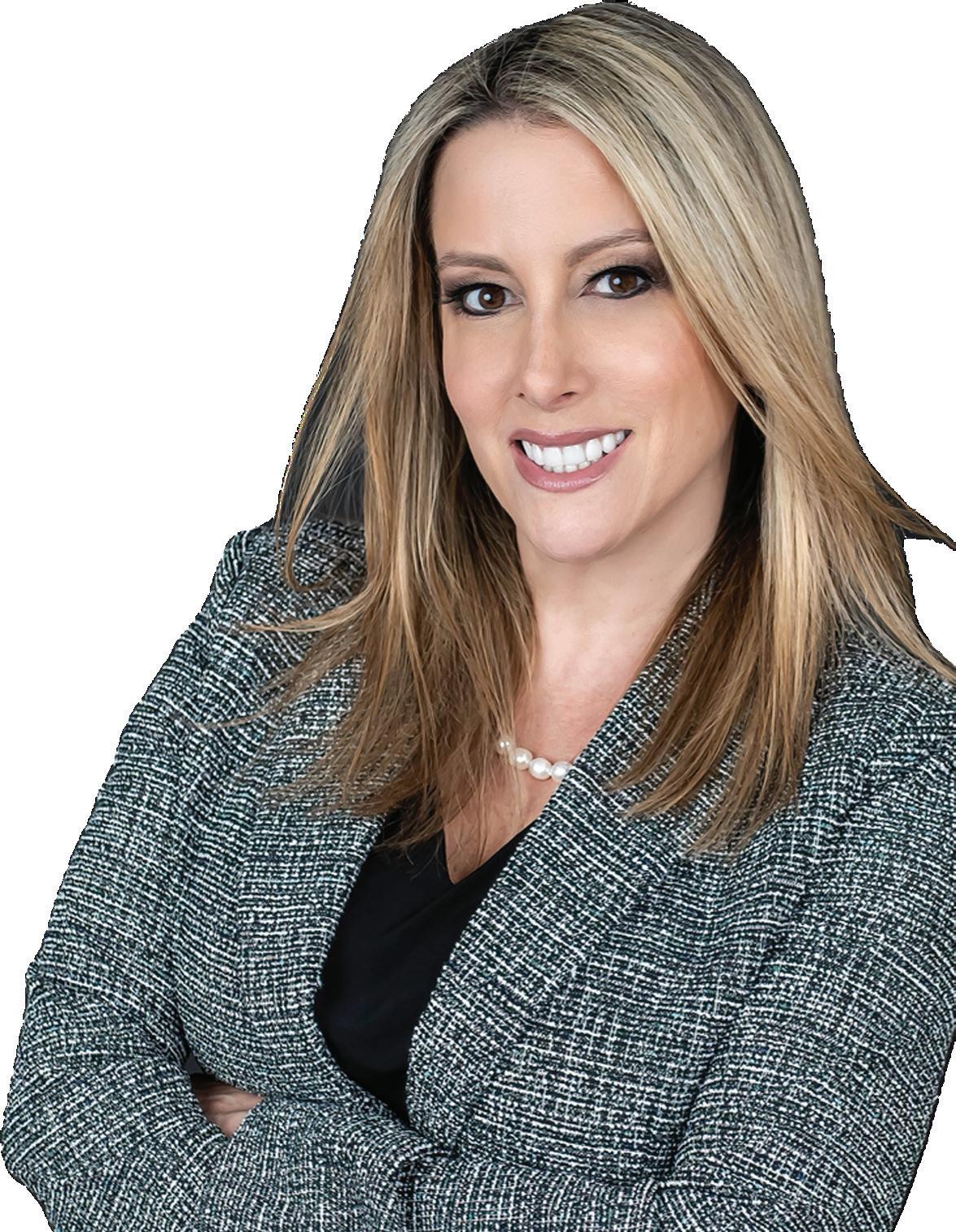

ACCOLADES AWARDS AND FIRM AWARDS
Kelley Kronenberg has been the recipient of numerous awards and honors both firm-wide and for a number of our practices, including individual accolades. Below is a select list of recognition and awards:



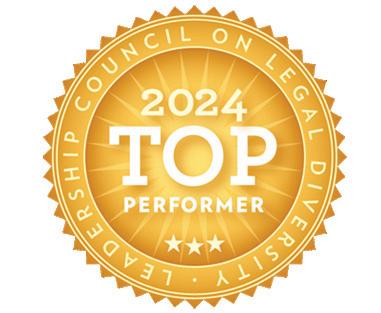


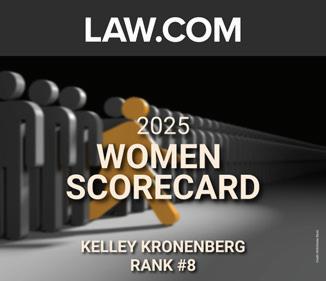
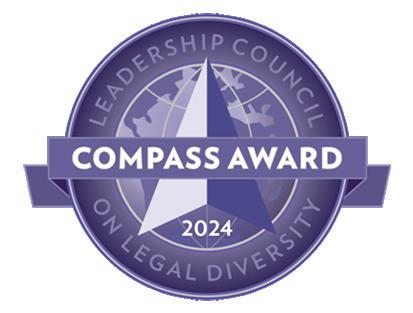





LOCATIONS

FORT LAUDERDALE
10360 W. State Road 84
Fort Lauderdale, FL 33324
Phone: (954) 370-9970
ORLANDO
20 North Orange Avenue, Suite 704
Orlando, FL 32801
Phone: (407) 648-9450
TAMPA
1511 North Westshore Blvd., Suite 400
Tampa, FL 33607
Phone: (813) 223-1697
DAYTONA
128 Orange Avenue, Unit 306
Daytona Beach, FL 32114
Phone: (754) 888-5437
NEW YORK CITY
111 Broadway, Suite 1205
New York, NY 10006
Phone: (845) 306-7867
CHICAGO
20 N. Clark Street, Suite 1150 Chicago, IL 60602
Phone: (312) 216-8828
JACKSONVILLE
10245 Centurion Parkway N, Suite 100
Jacksonville, FL 32256
Phone: (904) 549-7700
MERRILLVILLE
233 E. 84th Drive, Suite 200
Merrillville, IN 46410
Phone: (317) 731-6243
BY APPOINTMENT ONLY
ALBANY
401 New Karner Road. Suite 301
Albany, NY 12205
Phone: (845) 306-7867
ATLANTA
1100 Peachtree Street NE, Suite 200
Atlanta, GA 30309
Phone: (404) 990-4972
MIAMI
220 Alhambra Circle, Suite 410
Coral Gables, FL 33134
Phone: (305) 503-0850
NEW ORLEANS
400 Poydras Street, Suite 2400
New Orleans, Louisiana 70130
Phone: (504) 208-9055
TALLAHASSEE
6267 Old Water Oak Road, Suite 250
Tallahassee, FL 32312
Phone: (850) 577-1301
DALLAS
5956 Sherry Lane, 20th Floor
Dallas, TX 75225
Phone: (983) 999-4640
WEST PALM BEACH
1501 Belvedere Road, Suite 500-504
West Palm Beach, FL 33406
Phone: (561) 684-5956
INDIANAPOLIS
10475 Crosspoint Blvd., Suite 218
Indianapolis, IN 46256
Phone: (317) 731-6243
NAPLES
3080 Tamiami Trail E., Suite 322
Naples, FL 34112
Phone: (239) 990-6490
SHORT HILLS
51 John F. Kennedy Parkway First Floor West
Short Hills, NJ 07078
Phone: (908) 403-8174
FLORIDA KEYS
91760 Overseas Highway, Suite 100
Tavernier, FL 33070
Phone: (305) 928-6999

